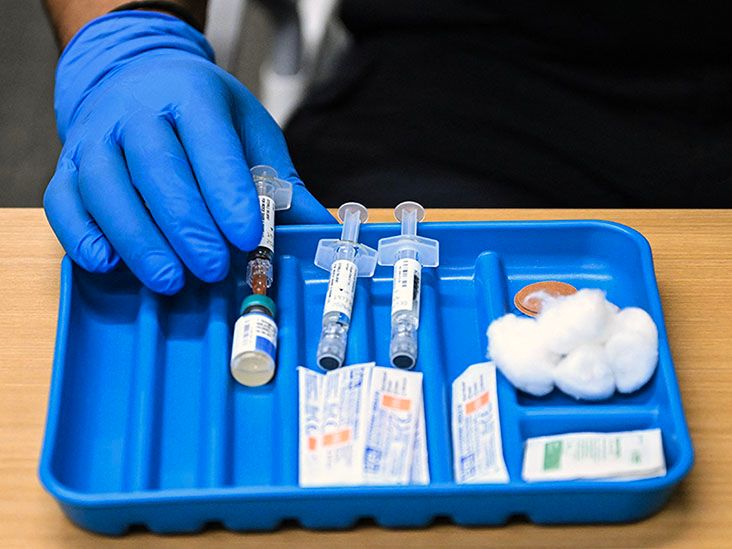CellCept (mycophenolate mofetil) is not safe to take while pregnant or breastfeeding. Certain factors, including the risks of fetal harm and pregnancy loss, may determine whether you should take the drug during this time.
CellCept is a brand-name drug prescribed to help prevent organ rejection after a heart, kidney, or liver transplant. It’s approved for use in adults and children ages 3 months and older.
Boxed warnings
This drug has boxed warnings. A boxed warning the most serious warning from the Food and Drug Administration (FDA). It alerts doctors and patients about drug effects that may be dangerous.
Risk of harm to a pregnancy: When used during pregnancy, CellCept may cause congenital anomalies (also known as birth defects) and pregnancy loss. The risk of pregnancy loss is highest during the first 3 months of pregnancy. Due to this risk, CellCept is not recommended for use in pregnant people.
Risk of serious infections: Taking immunosuppressant drugs, including CellCept can raise your risk for serious infections. Serious infections that happen while taking CellCept can lead to a hospital stay or death. Due to this risk, you should tell your doctor if you experience symptoms of infection while taking CellCept. Symptoms vary depending on the type of infection but can include fever, pain, and difficulty breathing.
Risk of cancer: Taking CellCept may increase your risk for certain types of cancer, including lymphoma and skin cancer. Tell your doctor right away if you notice symptoms of cancer. Symptoms of lymphoma include fever, fatigue (low energy), and unexplained changes in weight. Symptoms of skin cancer include moles or skin spots that are new, growing in size, or changing color. To reduce your risk of skin cancer, limit your time in the sun and use sunscreen when you’re outdoors.
For more information about these warnings, talk with your doctor or pharmacist.
Show MoreIf you may be or can become pregnant, it’s important to consider whether CellCept is a safe option for you.
It is not safe to take CellCept during pregnancy. When taken during pregnancy, CellCept may cause congenital anomalies (commonly known as birth defects) or pregnancy loss. The risk of pregnancy loss is highest during the first 3 months of pregnancy.
It isn’t known how often congenital anomalies and pregnancy loss may have happened in clinical studies of CellCept. However, data from pregnancy registries shows that 45% to 49% of people who took CellCept while pregnant had a pregnancy loss in the first 3 months of their pregnancy.
In addition, 23% to 27% of those who took part in pregnancy registries reported congenital anomalies after taking CellCept. Congenital anomalies that people reported included facial structural changes such as cleft lip and palate and changes affecting the heart. They also included problems with the esophagus, kidneys, nervous system, and structural changes of the arms and legs.
It’s important to note that pregnancy registry data is self-reported, meaning people taking the drug submitted the results. Therefore, researchers didn’t gather and oversee this information as part of a clinical study.
Tell your doctor right away if you become pregnant while taking CellCept. They can discuss the risks and benefits of continuing your CellCept treatment. They may also recommend a different treatment option for your condition during pregnancy.
Note: CellCept has a boxed warning about the risk of harm to a pregnancy. For details, see “Boxed warnings” in the introduction of this article.
Pregnancy registry
If you become pregnant while taking CellCept, you and your doctor may consider reporting it to the Mycophenolate Pregnancy Registry. (Mycophenolate is the active drug in CellCept).
A pregnancy registry helps gather information on how certain drugs can affect pregnancy. To learn more, call 800-617-8191, visit the registry website, or talk with your doctor.
If you’re currently breastfeeding or planning to do so, it’s important to understand the effects that CellCept could have on you or the breastfed child.
It isn’t known whether CellCept can pass into breast milk. Studies in rats that received CellCept showed the drug was present in milk. However, experts haven’t studied this drug in breastfeeding people. And animal studies don’t always indicate what may happen in humans.
If you’re breastfeeding or planning to breastfeed while taking CellCept, talk with your doctor about the risks and benefits.
If you’re sexually active and you or your partner can become pregnant, it’s important to consider how CellCept could affect your birth control options.
When taken during pregnancy, CellCept may cause fetal harm or pregnancy loss. If you’re sexually active and you or your partner can become pregnant, talk with your doctor about your birth control needs while you’re taking CellCept.
CellCept can also make certain forms of birth control less effective. This is especially true for birth control pills that contain the active drug levonorgestrel. Examples include Seasonique and Twirla.
If you take birth control pills, talk with your doctor before taking CellCept. Your doctor can determine whether you’re taking a birth control pill that contains levonorgestrel.
Have one pregnancy test right before starting CellCept and another 8 to 10 days later. Repeat and discuss pregnancy tests with your doctor routinely during follow-up visits.
Note: In this article, we use the terms “females” and “males” to refer to someone’s sex assigned at birth. For more information, see this article about the difference between sex and gender.
For females taking CellCept
Females taking CellCept must use effective birth control while taking the drug and for at least 6 weeks after their last dose. Examples of effective birth control include:
- intrauterine device (IUD)
- tubal ligation (blockage or removal of fallopian tubes)
- a male partner getting a vasectomy (blockage of the tubes that carry sperm)
- barrier methods, such as a condom, diaphragm, or cervical cap
For males taking CellCept
Males who take CellCept must use effective birth control while taking the drug and for at least 90 days after their last dose.
Disclaimer: Medical News Today has made every effort to make certain that all information is factually correct, comprehensive, and up to date. However, this article should not be used as a substitute for the knowledge and expertise of a licensed healthcare professional. You should always consult your doctor or another healthcare professional before taking any medication. The drug information contained herein is subject to change and is not intended to cover all possible uses, directions, precautions, warnings, drug interactions, allergic reactions, or adverse effects. The absence of warnings or other information for a given drug does not indicate that the drug or drug combination is safe, effective, or appropriate for all patients or all specific uses.


